Bhagat Singh Biography: Age, Place of Birth, Education, Family and Death
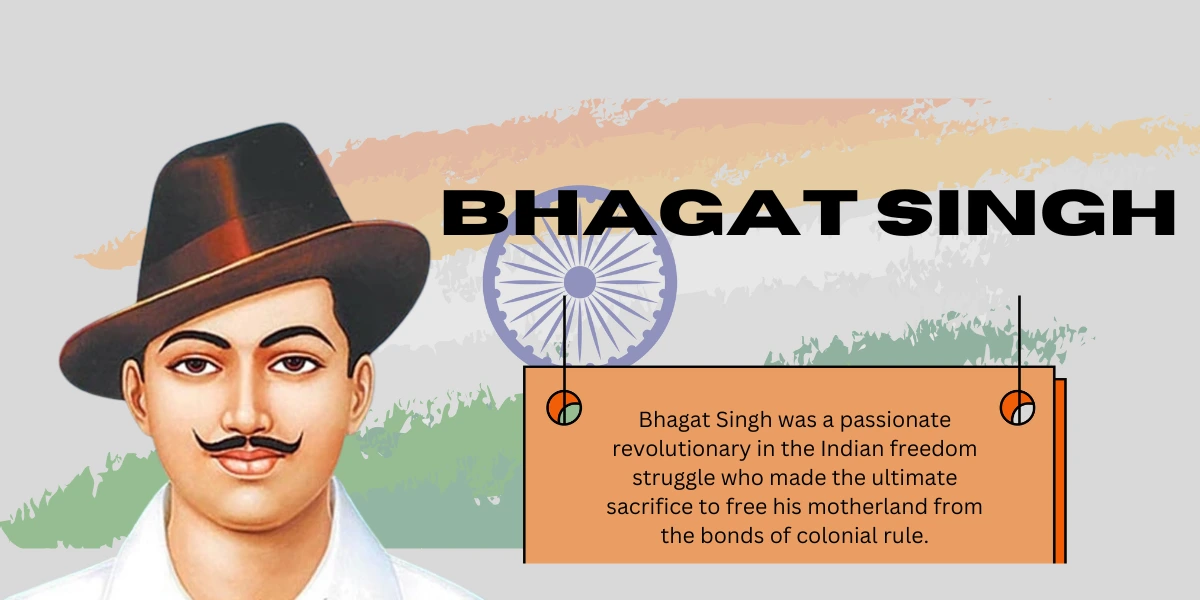
Bhagat Singh is one of the renowned freedom fighters in India. He inspired masses in the fight for independence from British rule and a fully devoted man to his cause. Many have been inspired by his intellect, courage, and passion for doing justice over the generations. Bhagat Singh played a paramount role during the Indian struggle for freedom and in fighting against tyranny.
Exploring his life, family background, and lasting legacy highlights his impact on the nation’s history.
Bhagat Singh Biography
All Information is Here About Bhagat Singh Biography according to Husband Name:
| Bhagat Singh Full Name | Bhagat Singh Sandhu |
| Date of Birth | September 28, 1907 |
| Bhagat Singh Age | 23 years |
| Place of Birth | Banga, Punjab, British India (now in Pakistan) |
| Bhagat Singh’s Father | Kishan Singh Sandhu |
| Bhagat Singh’s Mother | Vidyavati Kaur |
| Schooling | Dayanand Anglo-Vedic High School |
| College | National College |
| Associations | Naujawan Bharat Sabha, Kirti Kisan Party, Hindustan Socialist Republican Army, and Kranti Dal |
| Bhagat Singh Death | March 23, 1931 (Hanged) |
| Memorial | The National Martyrs Memorial, Hussainwala, Punjab |
Also Read:- Manoj Jarange Patil Biography || Armaan Malik Youtuber Biography
Who was Bhagat Singh?
Bhagat Singh was a passionate revolutionary in the Indian freedom struggle who made the ultimate sacrifice to free his motherland from the bonds of colonial rule. He was martyred at the young age of 23, along with two fellow revolutionaries, after being convicted by the British government for the assassination of John Saunders, a British police officer. They received capital punishment and were executed by hanging on March 23, 1931. Despite his brief but impactful life, Bhagat Singh left a lasting legacy. He continues to inspire generations of activists around the world.
Read More:- Who is Ratan Tata? || Who is Khushwant Singh? || Who is Shahneel Gill?
Bhagat Singhs’s Early Life
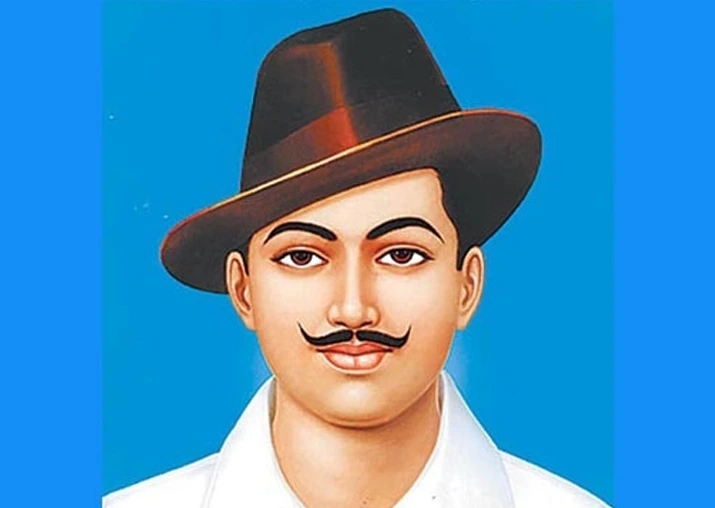
- Bhagat Singh Date of Birth: Bhagat Singh was born in Banga village on 28 September 1907. This village forms part of today’s Punjab province of Pakistan.
- Bhagat Singh’s Parents: He also joined the national movement for independence due to his family. One of his inspirational figures was his uncle, Sardar Ajit Singh Sandhu. Sandhu established the Bharatmata Society and authored a journal called “Bharat Mata.” He was an active figure in the agitation against the Canal Colonization Bill in 1907 as well as in the Ghadar Movement in 1914-1915.
- Bhagat Singh Schooling: Bhagat Singh went to Dayanand Anglo-Vedic High School in Lahore. It was the institution where all his revolutionary ideas were shaped.
- Bhagat Singh College: After that, he moved to the National College at Lahore, which was established by Lala Lajpat Rai. He studied at this institution for many subjects, including European revolutionary literature and history.
- Bhagat Singh Influence:
- Bhagat Singh started reading and learning from radicals like Karl Marx, Friedrich Engels, and Vladimir Lenin while he was still in college, the influence of which shaped his belief in socialist ideas, a basis from which he would shortly outline revolution.
- The Jallianwala Bagh massacre in 1919 deeply affected Bhagat Singh. He was only twelve years old at the time, and the event left a lasting impact on him.
Bhagat Singh Unknown Facts:
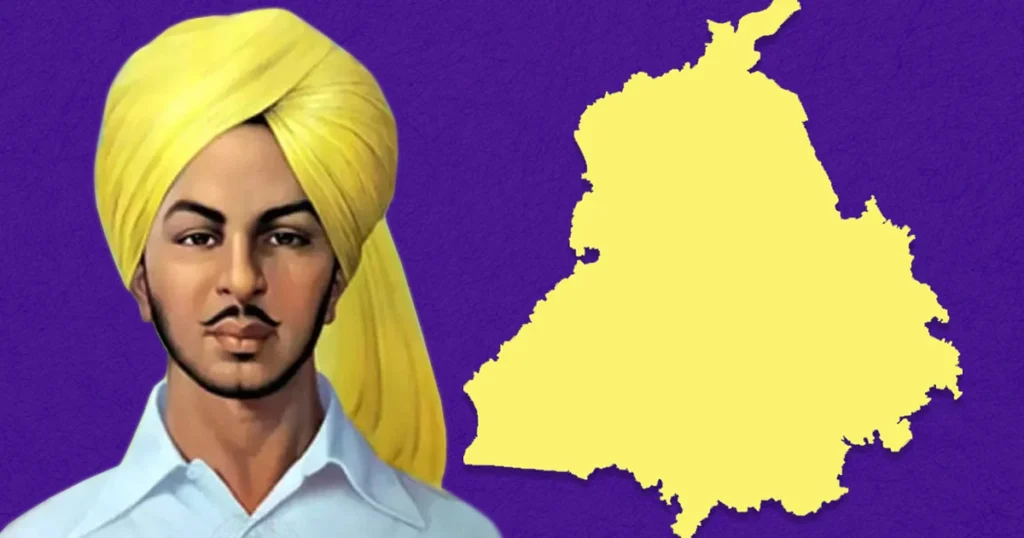
Bhagat Singh is known for the famous saying that ideas and spirits never die. “They can kill me, but they can’t kill my ideas.” This represents his strong beliefs and the longer-lasting impression of his revolutionary ideas.
- He meets the leader of the Bengal Revolutionary Party, Sachindranath Sanyal, to join his party. He could join only on a condition: if he was ready to leave home at any given time when anyone asked him to. Much later he agreed and left for his destination just one day before his marriage.
- Bhagat Singh worked as a newspaper vendor.
Also Read:- Zehra Gunes Husband || Sonam Bajwa Husband Name | Varalaxmi Sarathkumar Husband Name
Revolutionary Actions of Bhagat Singh
1) The killing of Police Officer John Saunders
The Simon Commission was established by the British Government to survey the political situation in India, but it was boycotted as it had no Indian members at all. The Commission reached Lahore on 30 October 1928 when Lala Lajpat Rai planned a silent protest there.
2) Lala Lajpat Rai’s Death
Horrified by this murder, Superintendent of Police James A. Scott resorted to a lathi charge. Lala Lajpat Rai died of a heart attack on 17 November 1928. In retaliation, Bhagat Singh and two companions conspired to assassinate Scott but instead murdered British Officer John Saunders on 17 December 1928.
3) The Bombing of Central Assembly Hall
On 8 April 1929, Bhagat Singh and Batukeshwar Dutt threw two bombs into the Assembly chamber from the public gallery when the session was in progress. The bombs injured some members of the Assembly. They caused a huge commotion instead of fleeing from the scene, they remained there and hurled the slogans: “Inquilab Zindabad!” Singh and Dutt were later arrested and shifted from one jail to another within Delhi.
Bhagat Singh Famous Quotes:
- “They may kill me, but they can’t kill my ideas. They can crush my body, but they will not be able to crush my spirit.”
- “Revolution is an inalienable right of mankind. Freedom is an imperishable birthright of all.”
- “Philosophy is the outcome of human weakness or limitation of knowledge.”
- “Merciless criticism and independent thinking are the two necessary traits of revolutionary thinking.”
- “I am a man and all that affects mankind concerns me.”
- “If the deaf is to hear, the sound has to be very loud.”
- “A rebellion is not a revolution. It may ultimately lead to that end.”
- “The aim of life is no more to control the mind, but to develop it harmoniously; not to achieve salvation hereafter, but to make the best use of it here below.”
- “Any man who stands for progress has to criticize, disbelieve, and challenge every item of the old faith.”
Also Read:- Sriti Jha Boyfriend Name || Sheikha Mahra Boyfriend || Alia Bhatt Boyfriend
Assembly Case Trial, Jail Term, and Execution
Following an initial case finding in May 1929, the trial began in early June, with on June 12, Singh and Dutt receiving life imprisonment for unlawful and malicious explosions. In 1929, associates Sukhdev, Kishori Lal, and Jai Gopal were arrested for setting up bomb factories at Lahore and Saharanpur, more directly implicating them with the murder of Saunders and the Assembly bombing.
Issues of discrimination in food, clothes, toilet items, books, and newspapers between the European and Indian inmates were raised by Bhagat Singh and other political prisoners in jail. They initiated a hunger strike that raised it to a national level, and the government expedited the Lahore Conspiracy Case. Singh was transferred to Bostal Jail in Lahore where his trial began on 10 July 1929.
On 23 March 1931 at 7:30 pm, Singh, Rajguru, and Sukhdev were executed in the Lahore Conspiracy Case.
Shaheed Diwas: It is “Shaheed Diwas on March 23, the anniversary of the martyrdom of freedom fighters Bhagat Singh, Shivaram Rajguru, and Sukhdev Thapar at the hands of the British Government. The day reminds us of their bravery and sacrifice in the name of independence.”
Bhagat Singh Photos
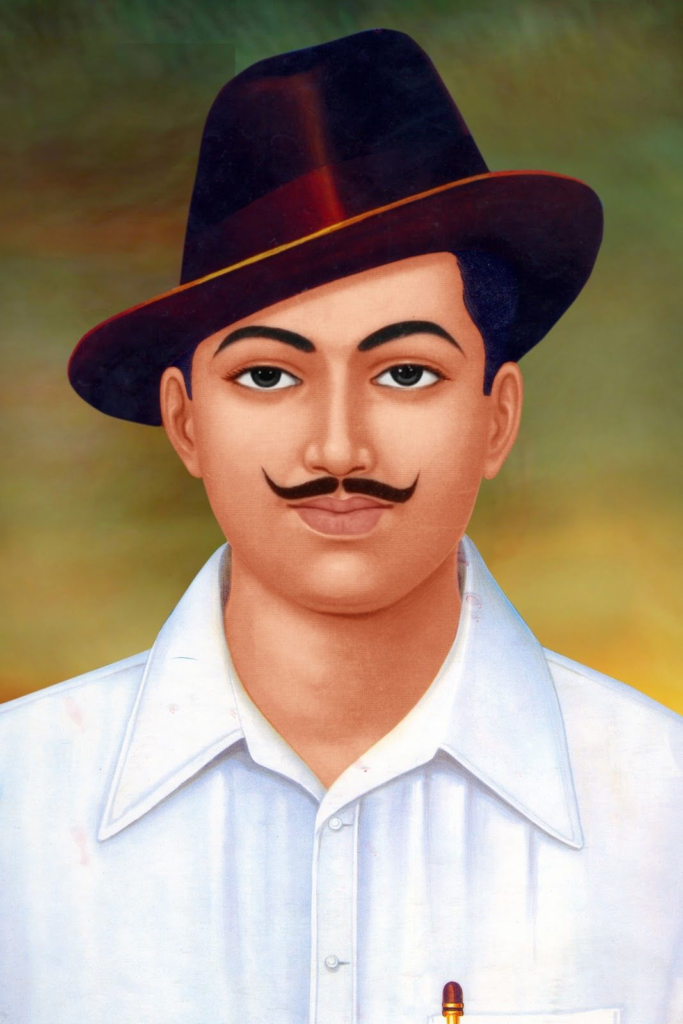
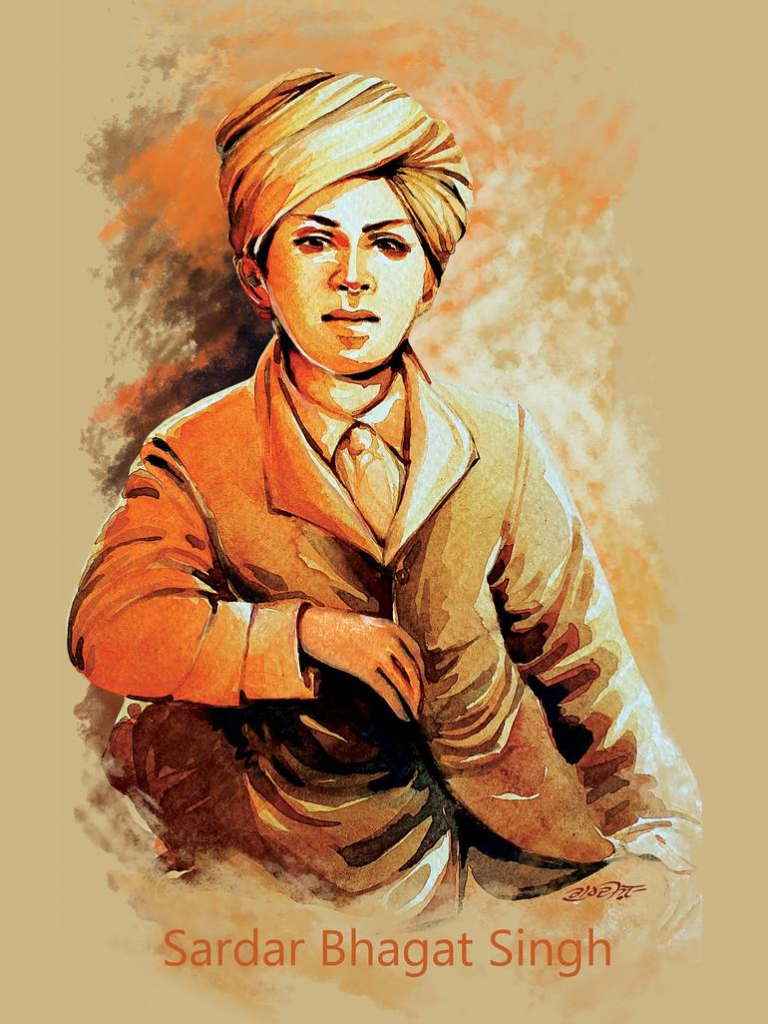
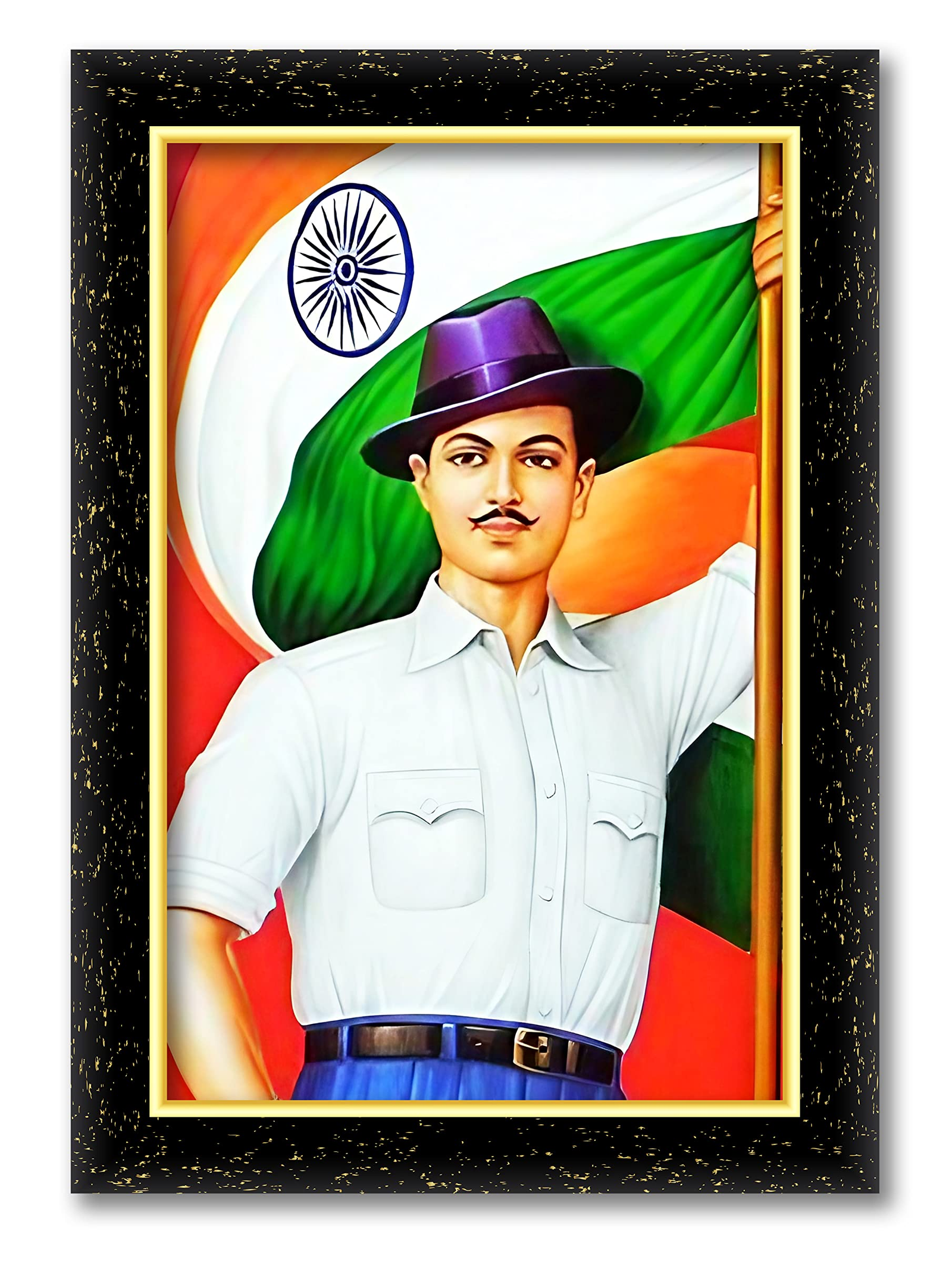
>Bhagat Singh 3D Photos



>Bhagat Singh Real Photo


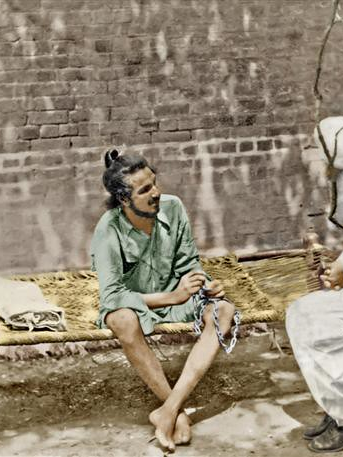
FAQ’s for Bhagat Singh
Q1. Who was Bhagat Singh?
Ans: Bhagat Singh, an Indian revolutionary freedom fighter, was born on September 28, 1907. Bhagat Singh will live in the memory of the world for his valiant activism and martyrdom in the cause of India’s independence from British rule.
Q: When was Bhagat Singh hanged?
Ans: On 23 March 1931 at 7:30 pm, Singh, Rajguru, and Sukhdev were executed in the Lahore Conspiracy Case.
Q: Who is the founder of the HSRA?
Ans: The Hindustan Socialist Republican Army (HSRA) was founded in 1928 at Feroz Shah Kotla in New Delhi. Founders are Bhagat Singh, Sukhdev Thapar, Chandrasekhar Azad, and others.
Q: What is the Famous Quote of the Bhagat Singh?
Ans: Bhagat Singh is highly popular because he made it clear that ideas and spirits never die. “They can kill me, but they can’t kill my ideas. They can crush my body, but they will not be able to crush my spirit.” This quote shows how strong his beliefs were and how his revolutionary thoughts made a lasting impression on youths after he was gone.

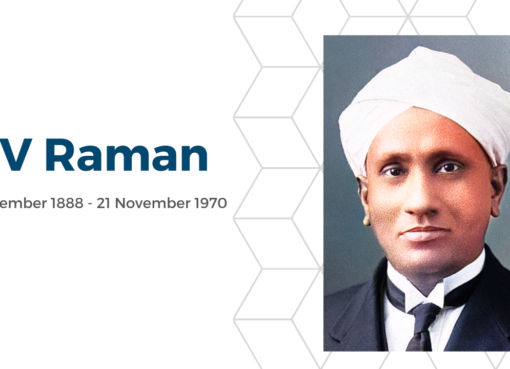
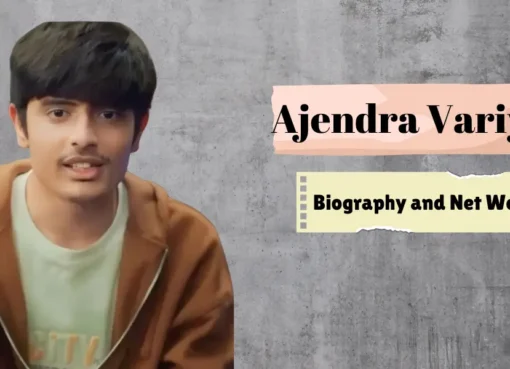
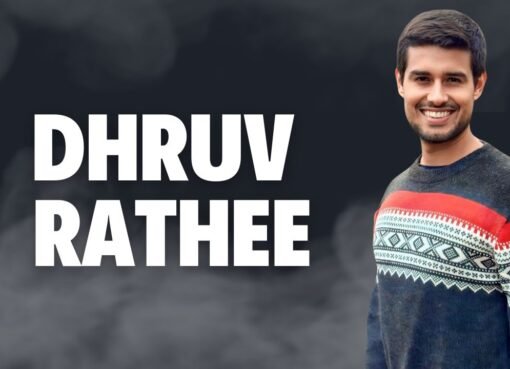
Leave a Comment